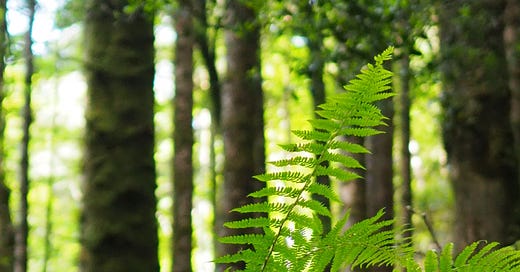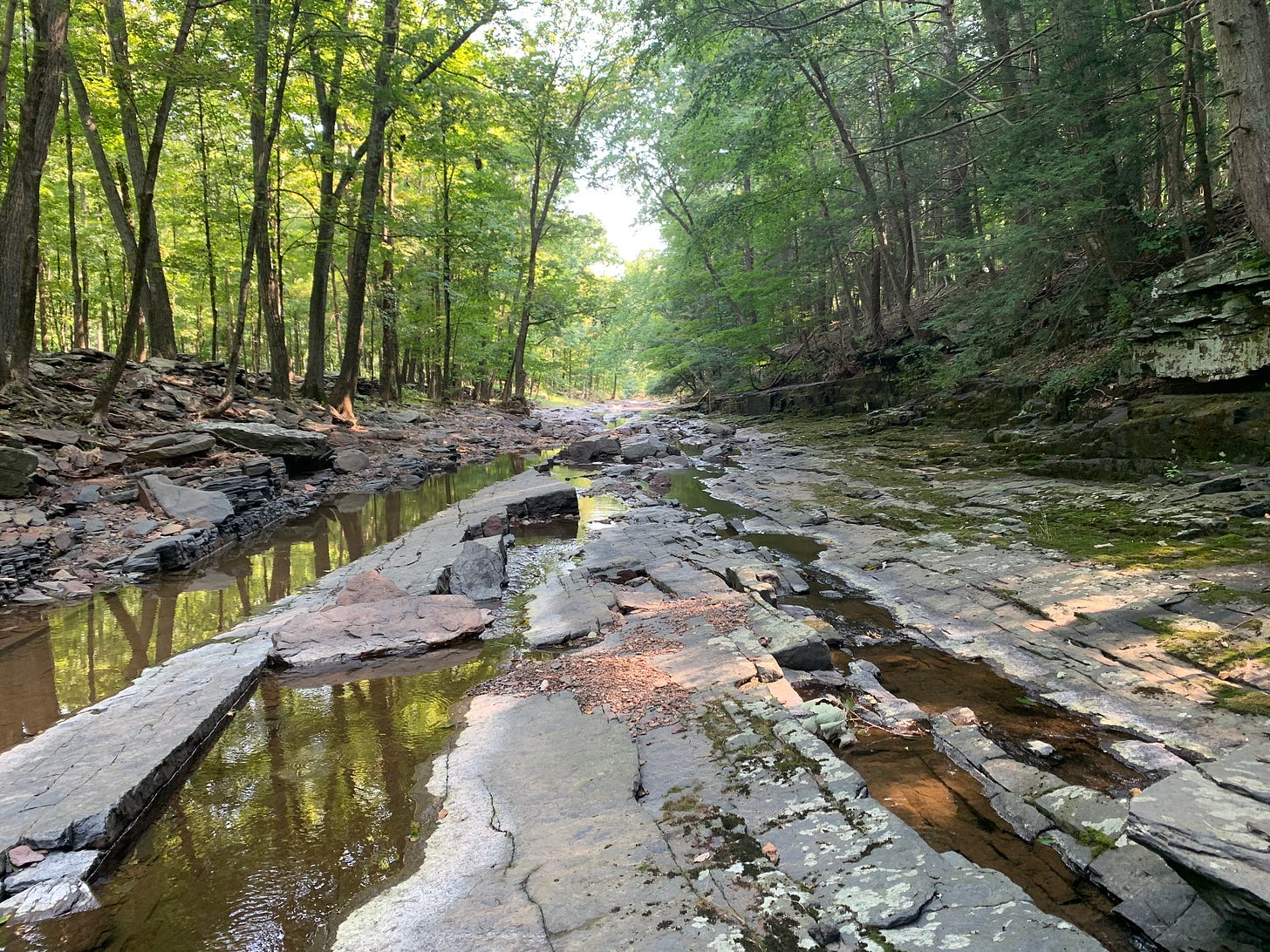Within the lexicon of the modern internet user, there is a slang term used to tell someone that they’ve spent far too much time online: “Go touch grass.” Oft delivered in response to out-of-touch statements or ranting diatribes, the statement simply infers that one ought to put the smart phone (or tablet, or laptop, or whatever device is wiring them to the internet) down and reconnect with the world around them.
While telling someone to “go touch grass” tends to be a dismissive and rhetorical statement, I think it would benefit a vast majority of the population if we all started taking it literally. In fact, don’t just touch grass. Put your hands onto the soil. Dig into the earth until it embeds itself beneath your fingernails (or don’t, if the thought just made you shudder). Hug as many trees as you can. Dip your feet into a stream, or a river, or a lake, or the ocean. Lay down in a forest. Press your bare feet onto a patch of moss. I know, this sounds very hippie-dippie, especially the hugging trees bit, but hear me out. Proximity to nature directly correlates to improved cognitive function, mental health, and overall wellbeing. This is not an anecdotal statement; there have been studies proving this. There are entire industries devoted to improving psychological wellbeing through immersion in nature and outdoor activities.
Anyway, here’s my anecdotal evidence.
Last year, I moved from a relatively large metropolitan area to the outskirts of a rural village on a river. While not quite the stone cottage in the remote woods surrounded by natural loveliness of my dreams, my house is surrounded by forest and is at least partly made of stone. My few neighbors are the sort who keep chickens in their back yards and maintain cordial relationships with one another. Food shopping now consists of driving to local farms and small markets. While my commute to work doubled in length, it went from predominantly highways to backroads that wind through forests and farmland. Instead of sitting in a dark room with the blinds always drawn for privacy, I drink my morning coffee on my recliner swathed in sunlight from our south-facing bay windows, or I sit outside on the patio in my garden. My partner takes daily walks around our yard with the dogs, and I take our infant for walks around the nearby lake, or up and down the canal path by the river. To say that my mental health has soared significantly since the move would be a tremendous understatement.
I will say (write?) this now with zero irony, boastfulness, or self-flagellation: I am extraordinarily privileged. I just opened my front door and stepped outside to soak in all that surrounds me. To my right, daffodils burst forth from the soil, buds ready to open within days or perhaps hours. In the shadows beyond, snow drops and crocuses dot the mossy ground in a pattern of white and purple. Choruses of songbirds and spring peepers reverberate around the woods that surround the yard. If I look closely at some of the tall trees above me, I can see their pastel-green flowers already blossoming. It’s only March, not even the vernal equinox, and life is already abundant. One step outside, a few breaths of fresh air, and I feel a renewed sense of hope and faith, desperately needed in these times. It is a feeling that I wish I could share in ways other than in words written on a blue light screen, in images that you can only look at by using the very thing I’m telling you to not. That said, however, it is far better than nothing at all. In fact, simply looking at photographs of nature actually does help.
So what? Is there a point to all of this? Of course, it’s all the point. We have decades of extensive research proving the benefits of the natural world and yet it feels so strangely revolutionary, and is so frequently treated like pseudoscience. We exist in our manmade structures, surrounded by fluorescent lights and straight lines, plugged into machines that provide us with a persistent onslaught of information designed to keep us looking, to keep us consuming, and we wonder why we feel so drained and so unhappy at the end of the day.
It’s not necessary to renounce technology and live in the woods, but change begins with the first few steps forward. And so, dear reader, I implore you: Put photographs of nature at your desk. Watch nature videos with the sound on. Go for a walk in your local park. Put a potted plant in your kitchen window. If the revolution begins with you, make sure the foundation is strong. Go touch grass.
.





